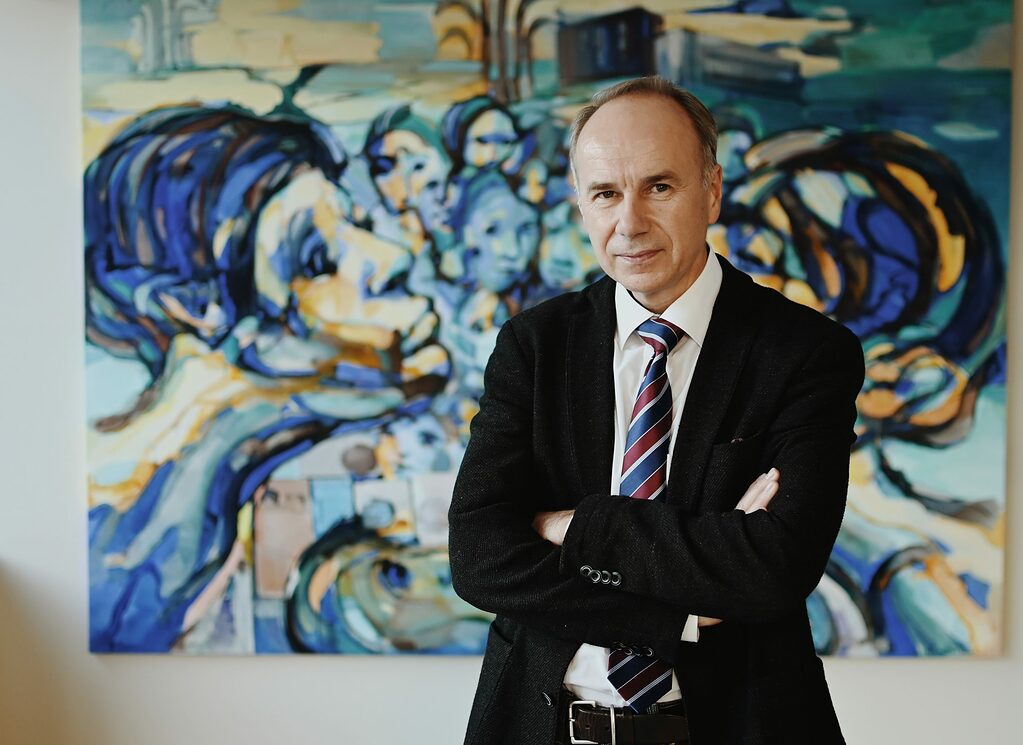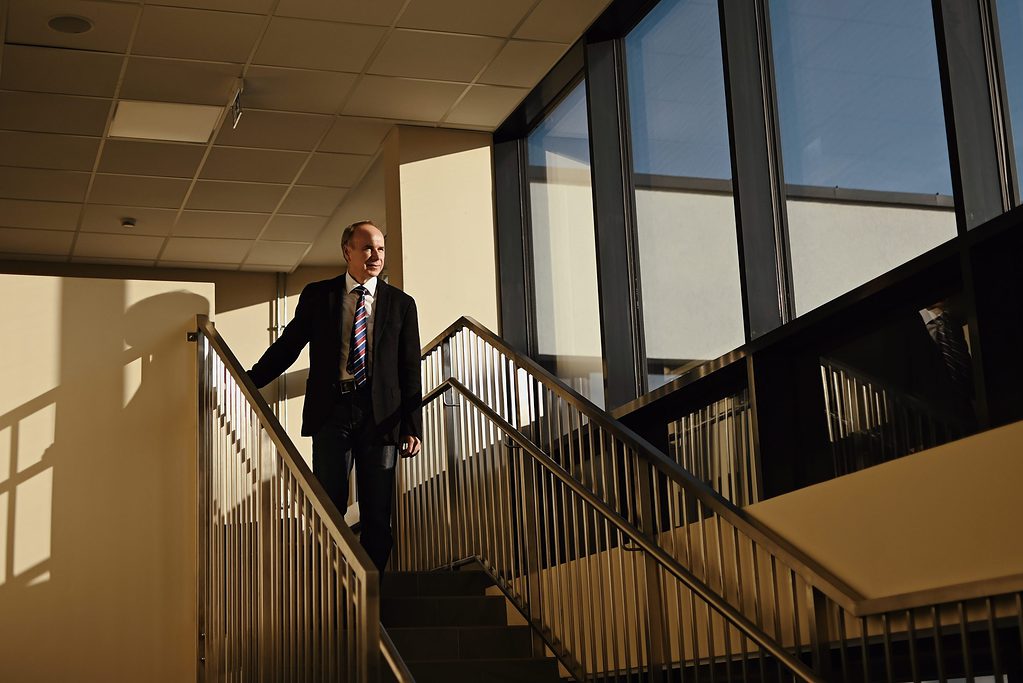My Vilnius introduces you to people for whom the city has become the place they call home. It’s all about the ordinary lives of extraordinary people and vice versa. These stories cover their favourite hidden gems and sights, as well as detours and discoveries in life.
Saulius Jurkevičius is responsible for bringing up some of the brightest minds in Lithuania. As the Headmaster of Vilnius Lyceum, he’s been making a notable impact not only on his students but the education system as a whole.
Saulius shares his perspective on why the culture of lyceum spreads beyond its borders and identifies some of the most significant facts throughout the history of Vilnius.
VP: Tell us a bit about yourself—how did it all start?
Saulius: I grew up in the Jerusalem district of Vilnius. In Karoliniškės, I graduated from the 43rd secondary school, which, like all Vilnius schools during the Soviet era, was named by number. From 1984 to 1989, I studied at the State Pedagogical Institute of the Order of Friendship of Nations in Vilnius and obtained a high school teacher qualification in history, social sciences, Soviet state and law.
After graduating from the institute, I started working as a history teacher at Vilnius 15th Secondary School. In 1994, I was appointed director of Vilnius Lyceum and I still work in this position. I also teach history lessons, participate in the preparation of the Lithuanian History Olympiad, and lead the preparation group of the Lithuanian national competition “Lithuanian History Expert”.

As the chairman of the history state final-year exam commission, I lead the correction of graduation maturity exam papers every year. I have written a 9th grade textbook with colleagues and contributed to the development of a variety of teaching materials.
VP: Is a career in history education something you’re going to continue to pursue?
Saulius: I would like to continue working as a history teacher in my career because I enjoy not only the subject of history but also working with students. All these years spent in school and the extra activities that were directly related to history made it very clear to me. I especially felt this when I started teaching history in an international baccalaureate class.
This created an opportunity to grow in a professional sense and opened the door to a high-quality and meaningful field of history teaching. It is unfortunate that teaching history according to the national curriculum remains on a superficial level, which in actuality doesn’t help one to discover the significance of studying history.
VP: Growing up in Vilnius, I couldn’t help but notice that the students of Lyceum have an unspeakable and tight-knit bond connecting them. What do you think has contributed to it?
Saulius: Vilnius lyceum, as an educational institution, is a distinctive phenomenon. Students enter the lyceum after passing the entrance exam, which creates a precondition to gather with students of similar ability.
They are motivated, responsible and committed to improvement. And in lyceum, conditions are created for these properties to be fully revealed. It develops students’ community spirit, which as a result, creates close connections between them.
Such an environment shapes one’s positivity, goodwill, and respect for their school. In particular, students are brought together by lyceum events, in which every student tries to participate in one way or another. In Lyceum, public holidays are always marked in a memorable and meaningful way.
It is especially important that the lyceum declares the values we strive to nurture and that is academicism, initiative, creativity, community spirit and maturity. It reaches every student organically and almost effortlessly.
VP: What does your day look like as the Headmaster of Vilnius Lyceum?
Saulius: Probably the most enjoyable part of the job is communicating with students, who are always positive and benevolent. This kind of communication is always inspiring. As for my daily routine, I usually start the day at the lyceum at 6:30 and finish at 18:30.

But if events take place, I have to stay in the lyceum for longer. I often come to work on weekends as well, as students prepare for various events on Saturday or Sunday. With hours and effort put in, work at the lyceum is difficult to measure.
VP: What’s your philosophy in life?
Saulius: Work your existing job as best you can, and preserve your innate qualities and hobbies.
VP: Let’s imagine a scenario where you have full freedom and can make any changes you think are relevant—what would you like to change in the local education system?
Saulius: The primary function of a school should be clearly identified. The Constitution of the Republic of Lithuania states that state and municipal schools are first and foremost—teaching and educational institutions.
Consequently, teaching and raising youth are essential functions of the school, which were clearly defined in 1992. Today, these terms that are enshrined in the constitution, are almost no longer used in the lexicon of education.
VP: Do you have any tips for someone who wants to excel in education but doesn’t know where to start?
Saulius: First of all and broadly speaking, the self-serving reforms that have weakened the Lithuanian school should be stopped. Second, one should try to assess the real situation in which he or she finds themselves. Then, stop wandering among the best practices and start thinking for yourself. Fourthly, it is important to finally decide which path you want to take next. Lastly, immediately look for a way to solve the existing and most painful problems.
VP: As an expert in history, what are some of your favourite facts about Vilnius?
Saulius: I would single out the following facts about Vilnius: the mention of the city in written sources in 1323; the founding of the university in 1579; the restoration of the state on February 16, 1918; the particularly painful period of 1919-1939, when Vilnius was not even part of the Lithuanian state and the restoration of independence on March 11, 1990.
VP: How would you describe the capital to someone who has never been here (yet)?
Saulius: I would mention Vilnius’ unique old town, its baroque churches, and vast green spaces. Also, the opportunity to see the Soviet heritage and the rapidly changing architectural environment in recent years.
VP: Last but not least, what would you wish for every student graduating from Lyceum to take with them in their next life stages?
Saulius: I would very much like the former students of the lyceum to become active Lithuanian citizens, work for their country, change and nurture it and share their experience.
VP: Where can we find you in the digital sphere?
Saulius: All relevant information about the lyceum can be found on our website.






